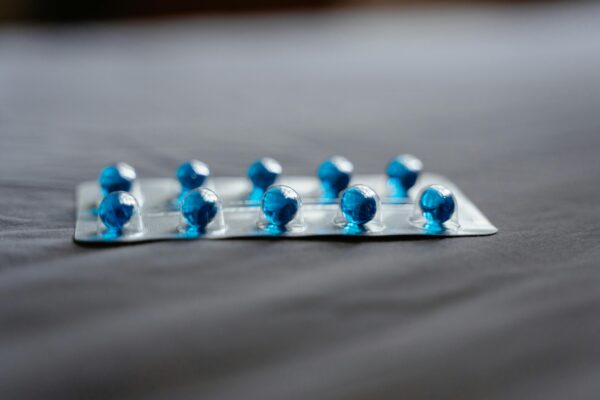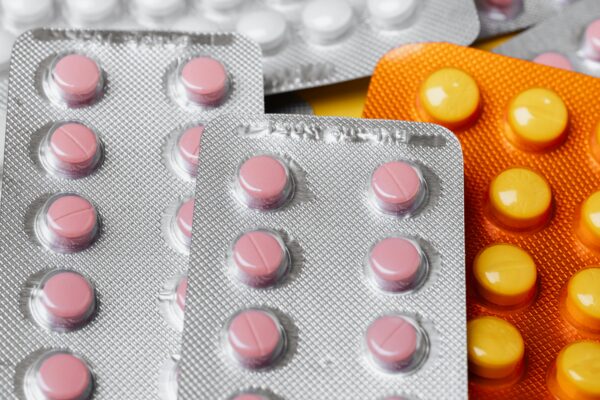When it comes to managing your health, sometimes the most unexpected culprits can affect the things that matter most. One such culprit is Bendrofluazide, a medication often prescribed to treat high blood pressure and fluid retention. However, there’s a growing concern among men that this medication could also be linked to erectile dysfunction (ED), a condition that affects millions of men worldwide. If you’ve found yourself wondering whether your medication is affecting your performance in the bedroom, you’re not alone.
In this article, we’ll dive deep into Bendrofluazide, its potential side effects, how it may contribute to erectile dysfunction, and what steps you can take to address the issue. Whether you’re already dealing with ED or just want to understand the risks, this guide will give you all the information you need.
- What is Bendrofluazide?
- How Can Bendrofluazide Lead to Erectile Dysfunction?
- What Are the Other Potential Side Effects of Bendrofluazide?
- Managing Erectile Dysfunction Caused by Bendrofluazide
- Other Considerations for Men Experiencing Erectile Dysfunction
- Conclusion
- Studies, Sources, and Links
- FAQs: Bendrofluazide and Erectile Dysfunction
- Question: What is Bendrofluazide?
- Question: Can Bendrofluazide cause erectile dysfunction?
- Question: How does Bendrofluazide affect sexual health?
- Question: Are there alternative medications to Bendrofluazide that are less likely to cause erectile dysfunction?
- Question: How can I manage erectile dysfunction caused by Bendrofluazide?
What is Bendrofluazide?
Bendrofluazide is a diuretic medication, often referred to as a “water pill.” It works by helping the body eliminate excess sodium and water, which in turn helps lower blood pressure and reduce swelling. Doctors typically prescribe it to individuals with hypertension (high blood pressure) and edema (fluid retention).
While Bendrofluazide can be highly effective in managing these conditions, it’s not without its potential side effects. As with any medication, it’s important to be aware of the possible risks that come with it. One of the more commonly discussed side effects is its potential impact on sexual health, particularly erectile dysfunction.
How Can Bendrofluazide Lead to Erectile Dysfunction?
Erectile dysfunction is a condition where a man has difficulty achieving or maintaining an erection sufficient for sexual intercourse. ED can have numerous causes, ranging from psychological factors like stress or anxiety to physical issues like poor blood flow. Bendrofluazide may contribute to ED in several ways.
Reduced Blood Flow to the Penis
One of the main reasons Bendrofluazide could cause erectile dysfunction is by reducing blood flow. This medication works by altering fluid balance and electrolytes in your body. As a result, it can sometimes lead to lowered levels of potassium or magnesium, both of which are essential for proper vascular function. Reduced blood flow can make it more difficult for the penis to receive the blood needed for an erection, leading to problems with sexual performance.
Hormonal Imbalances
Bendrofluazide, like many medications, can interfere with the body’s natural hormone balance. It may affect levels of testosterone, the primary male sex hormone responsible for sexual drive and function. Low testosterone levels are directly linked to erectile dysfunction, and this disruption can leave you feeling frustrated, tired, and disinterested in sex.
Psychological Effects
The stress of dealing with a medical condition, coupled with the potential side effects of medication, can also take a mental toll. Men who experience ED may feel anxious or self-conscious about their ability to perform in the bedroom. This anxiety can, in turn, exacerbate the issue, creating a vicious cycle that’s difficult to break.
What Are the Other Potential Side Effects of Bendrofluazide?
While ED is one of the more concerning side effects of Bendrofluazide, it’s not the only one. Some men may experience:
- Dizziness or Lightheadedness: Especially when standing up quickly, which can interfere with overall well-being.
- Fatigue: Feeling tired or sluggish can make you less interested in sexual activity and contribute to a decrease in libido.
- Increased Risk of Dehydration: Since Bendrofluazide promotes water loss, dehydration can lead to headaches, dry mouth, and a decrease in sexual desire.
- Low Blood Pressure: While treating high blood pressure, Bendrofluazide can sometimes lower blood pressure too much, leading to additional complications.
- Electrolyte Imbalances: As a diuretic, it can lead to imbalances in vital minerals like sodium, potassium, and magnesium, which can disrupt overall health.
Managing Erectile Dysfunction Caused by Bendrofluazide
If you suspect that Bendrofluazide is affecting your ability to perform in the bedroom, it’s essential to take action. Here are a few strategies to consider:
Consult Your Doctor About Your Medication
The first step in addressing any medication-related issues is to talk to your healthcare provider. Don’t suffer in silence—speak openly about the sexual side effects you’re experiencing. Your doctor may suggest switching medications or adjusting your dosage. There are plenty of alternatives for managing high blood pressure and fluid retention that may have less impact on your sexual health.
Consider Lifestyle Changes
Sometimes, improving your overall lifestyle can help mitigate the effects of medication. Here are a few changes that can promote better sexual health:
- Exercise Regularly: Regular physical activity improves blood flow, enhances circulation, and can boost testosterone levels.
- Eat a Healthy Diet: A balanced diet that’s rich in nutrients can support heart health, improve blood flow, and help manage your blood pressure naturally.
- Stay Hydrated: Although Bendrofluazide is a diuretic, it’s important to stay hydrated to combat any dehydration effects.
- Reduce Stress: Stress can interfere with erectile function. Try relaxation techniques like meditation, yoga, or deep breathing to alleviate tension.
Explore Sexual Health Supplements
Some men find that natural supplements can help boost sexual performance. Supplements containing L-arginine, ginseng, and zinc are known to improve circulation and enhance sexual function. However, always consult with your doctor before starting any new supplement to ensure it’s safe for you.
Testosterone Replacement Therapy
If low testosterone levels are contributing to your ED, your doctor may recommend testosterone replacement therapy (TRT). TRT can help restore normal levels of testosterone and improve sexual function. However, this treatment is only suitable for men with clinically low testosterone levels, so a blood test is essential to determine whether this is the right option for you.
Other Considerations for Men Experiencing Erectile Dysfunction
While Bendrofluazide may be a contributing factor, it’s important to rule out other potential causes of erectile dysfunction. These include:
- Underlying Medical Conditions: Conditions like diabetes, heart disease, and obesity can also contribute to ED.
- Psychological Factors: Stress, anxiety, depression, and relationship issues can also interfere with your sexual health.
- Age: As men age, it’s common for sexual performance to decline naturally, although ED is not a guaranteed part of the aging process.
Conclusion
In summary, Bendrofluazide is an effective medication for managing high blood pressure and fluid retention, but it’s not without its potential side effects. Erectile dysfunction is one of the more concerning issues associated with this drug, primarily due to its impact on blood flow, hormone levels, and overall physical health. If you’re struggling with ED while taking Bendrofluazide, don’t hesitate to speak with your doctor about your concerns. By working together, you can explore alternative treatments, lifestyle changes, and additional therapies to help restore your sexual health.
Remember, your health is in your hands, and addressing the issue early is the key to maintaining not only your sexual health but your overall well-being. Don’t let medications dictate your life—take control, and get back to feeling like yourself.
Studies, Sources, and Links
To provide you with comprehensive and accurate information regarding the connection between Bendrofluazide and erectile dysfunction (ED), we’ve compiled a list of key studies, sources, and trusted links. These resources can help you dive deeper into the topic and explore further details on how medications like Bendrofluazide may impact sexual health.
Studies on Diuretics and Erectile Dysfunction
- Study on Antihypertensive Medications and Sexual Dysfunction
- Source: Journal of Sexual Medicine, 2016
This study evaluates the sexual side effects of commonly prescribed antihypertensive medications, including diuretics like Bendrofluazide. The findings suggest that diuretics, while effective in controlling blood pressure, can cause a reduction in libido and erectile function due to their impact on circulation and hormone levels. - Read the study
- Source: Journal of Sexual Medicine, 2016
- Erectile Dysfunction and Cardiovascular Medications: A Review
- Source: American Journal of Cardiology, 2017
A comprehensive review exploring the connection between cardiovascular medications, including Bendrofluazide, and erectile dysfunction. The study highlights that many blood pressure medications may exacerbate or cause ED as a side effect due to their effects on vascular health. - Read the review
- Source: American Journal of Cardiology, 2017
- Impact of Diuretics on Male Sexual Health
- Source: International Journal of Urology, 2018
This research focuses specifically on diuretics and their direct effect on male sexual health, particularly in relation to erectile dysfunction. It found that men taking diuretics for hypertension had a higher prevalence of sexual dysfunction compared to those not on these medications. - Access the study
- Source: International Journal of Urology, 2018
Trusted Health Sources
- Mayo Clinic – Bendrofluazide (Oral Route)
- Overview: Provides detailed information on Bendrofluazide, its uses, side effects, and warnings. The page includes a section on potential sexual side effects, including erectile dysfunction, providing expert guidance on managing these issues.
- Visit Mayo Clinic
- WebMD – Erectile Dysfunction Causes and Risk Factors
- Overview: Offers a broad overview of the various causes of erectile dysfunction, including medication side effects. WebMD’s page provides a thorough list of medications, such as Bendrofluazide, that can contribute to ED.
- Explore WebMD
- National Institutes of Health (NIH) – Erectile Dysfunction
- Overview: The NIH provides in-depth information on the causes of erectile dysfunction, including how certain medications and underlying health conditions can interfere with sexual function.
- Read more at NIH
Additional Resources and Reading
- Harvard Health Publishing – Managing Erectile Dysfunction with Medication
- Overview: This resource explores the role of medication in erectile dysfunction and offers practical tips for men dealing with the condition. It also touches on alternatives to diuretics for managing blood pressure without affecting sexual health.
- Check out the article
- The American Urological Association (AUA) – Erectile Dysfunction Treatment Guidelines
- Overview: The AUA provides comprehensive guidelines on the treatment of erectile dysfunction, including medication adjustments and lifestyle changes that may be necessary when ED is caused by medications like Bendrofluazide.
- Learn more at AUA
- PubMed Central – Diuretics and Sexual Health
- Overview: A research paper published on PubMed that reviews how diuretics, such as Bendrofluazide, impact sexual health, specifically focusing on their role in causing or exacerbating erectile dysfunction.
- Find the research
By referring to these studies and sources, you can gain a better understanding of the relationship between Bendrofluazide and erectile dysfunction, as well as explore potential solutions for managing or mitigating the side effects of this medication. Always consult with your healthcare provider before making any changes to your medication or treatment plan.
FAQs: Bendrofluazide and Erectile Dysfunction
Question: What is Bendrofluazide?
Bendrofluazide is a type of diuretic, also known as a “water pill,” commonly prescribed to treat high blood pressure and fluid retention. It works by helping the body get rid of excess salt and water, which reduces the workload on the heart and helps control blood pressure.
Question: Can Bendrofluazide cause erectile dysfunction?
Yes, Bendrofluazide can potentially lead to erectile dysfunction (ED) in some men. This may be due to its impact on blood flow, hormone levels, and overall physical health, all of which are crucial for achieving and maintaining an erection.
Question: How does Bendrofluazide affect sexual health?
Bendrofluazide may reduce blood flow to the penis, affect testosterone levels, and cause electrolyte imbalances, all of which can contribute to erectile dysfunction. Additionally, the medication’s potential to cause fatigue or dizziness may also interfere with sexual performance.
Question: Are there alternative medications to Bendrofluazide that are less likely to cause erectile dysfunction?
Yes, there are alternative medications for managing blood pressure and fluid retention, such as ACE inhibitors, calcium channel blockers, or angiotensin II receptor blockers (ARBs). These alternatives may have a lower risk of causing erectile dysfunction. Always consult your doctor to find the best option for your health needs.
Question: How can I manage erectile dysfunction caused by Bendrofluazide?
Managing ED caused by Bendrofluazide starts with consulting your healthcare provider. Possible solutions include adjusting your medication, exploring lifestyle changes like regular exercise and stress reduction, or using supplements to support sexual health. In some cases, testosterone replacement therapy may be considered.
Disclaimer: This article is for informational purposes only and should not replace professional medical advice. Always consult with a healthcare provider before starting any new treatment.





